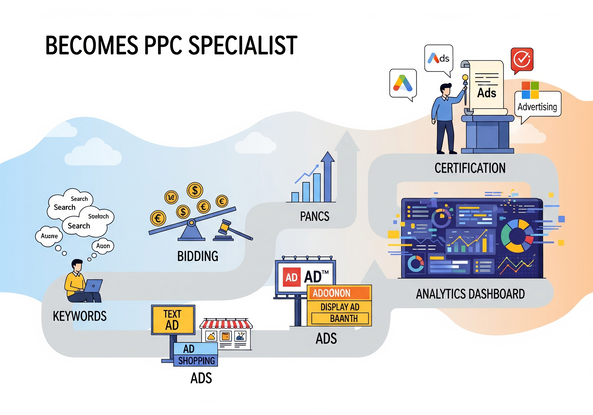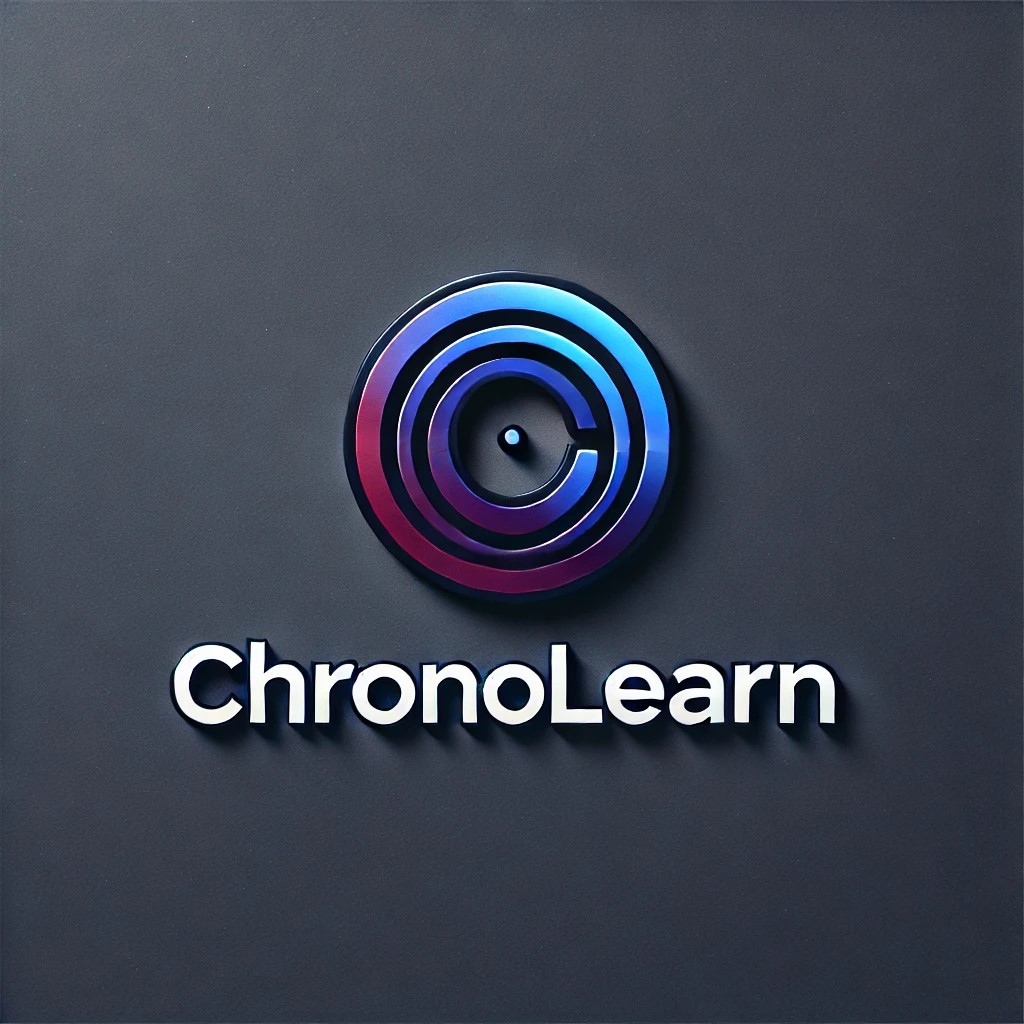
How to Become a PPC Specialist in 2025: A Complete Roadmap
Introduction
Pay-per-click (PPC) advertising is one of the most in-demand skills in the digital marketing landscape. With businesses investing heavily in search and display ads to drive measurable results, the role of a PPC specialist has evolved into a strategic, data-driven, and high-impact career.
Whether you're a marketing enthusiast, a recent graduate, or someone looking to pivot into a performance-based role, becoming a PPC specialist in 2025 offers excellent opportunities. In this blog, we’ll walk you through the skills, tools, certifications, and strategies you need to break into the world of PPC advertising.
Who Is a PPC Specialist?A PPC (Pay-Per-Click) Specialist is a digital marketing expert who creates, manages, and optimizes paid advertising campaigns across platforms like Google Ads, Bing Ads, Meta Ads, LinkedIn Ads, and more. Their goal is to maximize ROI by targeting the right audience with the right message at the right time—within a defined budget.
Why Choose PPC as a Career in 2025?-
High Demand: Businesses of all sizes are prioritizing measurable results and are allocating more budget to performance ads.
-
Attractive Salaries: Skilled PPC professionals often earn competitive salaries, especially when certified and experienced.
-
Remote Opportunities: Many PPC roles are remote-friendly, making it accessible globally.
-
Data-Driven Career: For those who enjoy numbers, trends, and real-time insights, PPC is a rewarding path.
-
Scalable Skill Set: PPC knowledge integrates well with other domains like SEO, content marketing, and web analytics.
Start with a foundational understanding of digital marketing concepts such as conversion funnels, customer journeys, and KPIs.
2. Understand Paid Advertising PlatformsMaster the core platforms:
-
Google Ads (Search, Display, Shopping, Performance Max)
-
Meta Ads (Facebook and Instagram)
-
LinkedIn Ads (for B2B campaigns)
-
YouTube Ads (video campaigns and retargeting)
Earning certifications builds credibility and boosts job prospects. Consider:
-
Google Ads Search Certification
-
Meta Blueprint Certification
-
Microsoft Advertising Certification
-
HubSpot Paid Media Certification
Use tools like:
-
Google Analytics 4 (GA4)
-
Google Tag Manager (GTM)
-
Looker Studio (formerly Data Studio)
-
Excel or Sheets for reporting
Learn how to track metrics like CTR, CPC, Quality Score, ROAS, and conversion rates.
5. Practice with Real or Simulated CampaignsCreate and manage mock campaigns using Google Ads' free interface or participate in digital marketing simulations (e.g., Google Skillshop, PPC University).
6. Stay Updated on TrendsFollow industry-leading blogs, LinkedIn influencers, Google Ads updates, and forums like Reddit’s PPC sub. Keep up with:
-
AI-powered bidding strategies
-
Audience segmentation
-
Video and mobile-first ads
-
Voice search ad optimization
Document your campaign results, optimizations, and A/B tests—even if they’re from personal or simulated projects. Employers value proof of skill.
8. Apply for Jobs or Freelance ProjectsStart with internships, freelance gigs on platforms like Upwork/Fiverr, or entry-level digital marketing roles that offer PPC exposure.
Top Skills You Need as a PPC Specialist-
Keyword Research & Match Types
-
Ad Copywriting & Creative Testing
-
Budget Management & Bidding Strategies
-
Conversion Rate Optimization (CRO)
-
A/B Testing
-
Reporting & ROI Analysis
-
Landing Page Optimization
-
Leverage AI tools for campaign automation and performance prediction.
-
Invest in learning about first-party data strategies due to cookie deprecation.
-
Understand privacy compliance like GDPR and Google’s Consent Mode.
-
Explore Performance Max campaigns and YouTube Shorts ads—rising formats in 2025.
Becoming a PPC specialist in 2025 requires a mix of creativity, strategy, and data analysis. With the rise of automation, evolving ad platforms, and growing business demand for measurable performance, it’s an ideal time to start your journey in paid advertising.
Invest in learning, stay curious, and apply your skills to real-world campaigns—because every click counts.






